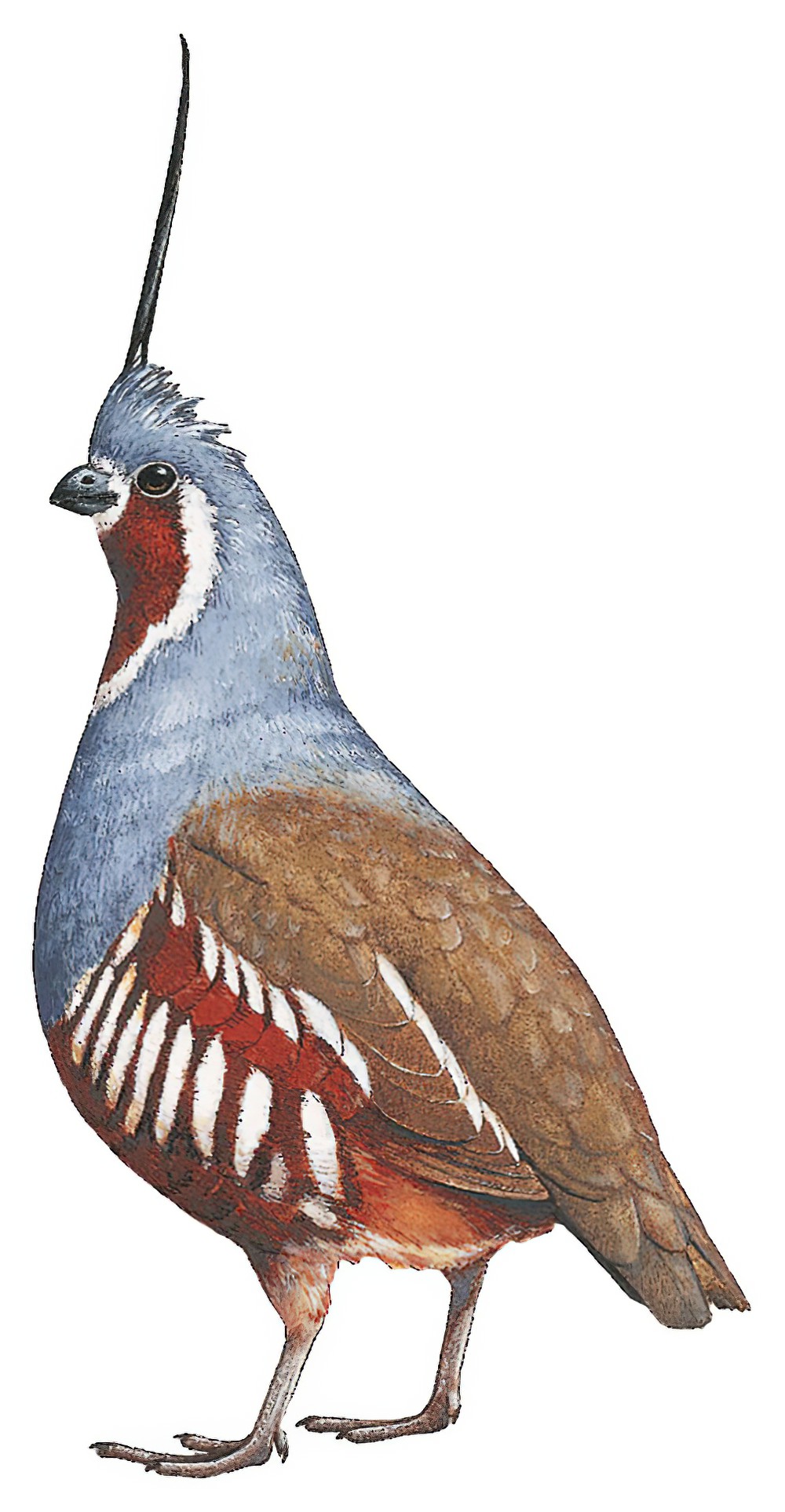Mountain Quail / Oreortyx pictus

Mountain Quail
SCI Name:
Protonym: Ortyx picta Trans.Linn.Soc.London(1), 16 p.143
Taxonomy: Galliformes / Odontophoridae / Oreortyx
Taxonomy Code: mouqua
Type Locality: 'Interior of New California'' = headwaters of the Umpqua River near the Calapooia Mountains, fide Oberholser supra p. 82.
Author: Douglas
Publish Year: 1829
IUCN Status: Least Concern
DEFINITIONS
OREORTYX
(Odontophoridae; Ϯ Mountain Quail O. pictus) Gr. ορος oros, ορεος oreos mountain; genus Ortyx Stephens, 1819, bobwhite; "473. Oreortyx pictus, (Douglas,) Baird. Plumed Partridge. Mountain ranges of California and Oregon towards the coast. ... OREORTYX.— Crest feathers very long, linear; tail scarcely more than half the wings; bill stout; claws blunt, the lateral not reaching the base of the middle claw. Toes of the out-stretched foot reaching beyond the tail. ... OREORTYX, Baird ... I do not find any genus already established for this bird, which appears to me worthy of generic rank, and differing in marked characters both from Lophortyx and Callipepla. I am unable to say whether more than one species can be included in it. OREORTYX PICTUS, Baird. Plumed Partridge; Mountain Quail." (Baird 1858); "Oreortyx Baird, Rep. Expl. and Surv. R. R. Pac., 9, 1858, p. xlv, 638, 642. Type, by monotypy, Ortyx picta Douglas." (Peters 1934, II, 43).
Var. Orortyx, Oreoortyx.
pictus
L. pictus painted < pingere to paint.
● ex “Crying Bird” of Bartram 1791 (subsp. Aramus guarauna).
● "90. PHASIANUS. ... pictus. 4. P. crista flava, pectore coccineo, remigibus secundariis cæruleis. Amœn. acad. I. p. 282. t. 13. Phasianus variis coloribus splendidus. Edw. av. 68. t. 68. & t. 69. f. 2. Phasianus ruber, e china. Alb. av. 3. p. 34. t. 36. Habitat in China.” (Linnaeus 1758) (Chrysolophus).
● ex “Barbu de Maynas” of d’Aubenton 1765-1781, pl. 330, “Beau Tamatia” of de Buffon 1770-1785, and “Beautiful Barbet” of Latham 1782 (syn. Eubucco versicolor).
● ex “Pintado Partridge, var. A” of Latham 1787 (Francolinus).
UPPERCASE: current genus
Uppercase first letter: generic synonym
● and ● See: generic homonyms
lowercase: species and subspecies
●: early names, variants, mispellings
‡: extinct
†: type species
Gr.: ancient Greek
L.: Latin
<: derived from
syn: synonym of
/: separates historical and modern geographic names
ex: based on
TL: type locality
OD: original diagnosis (genus) or original description (species)












